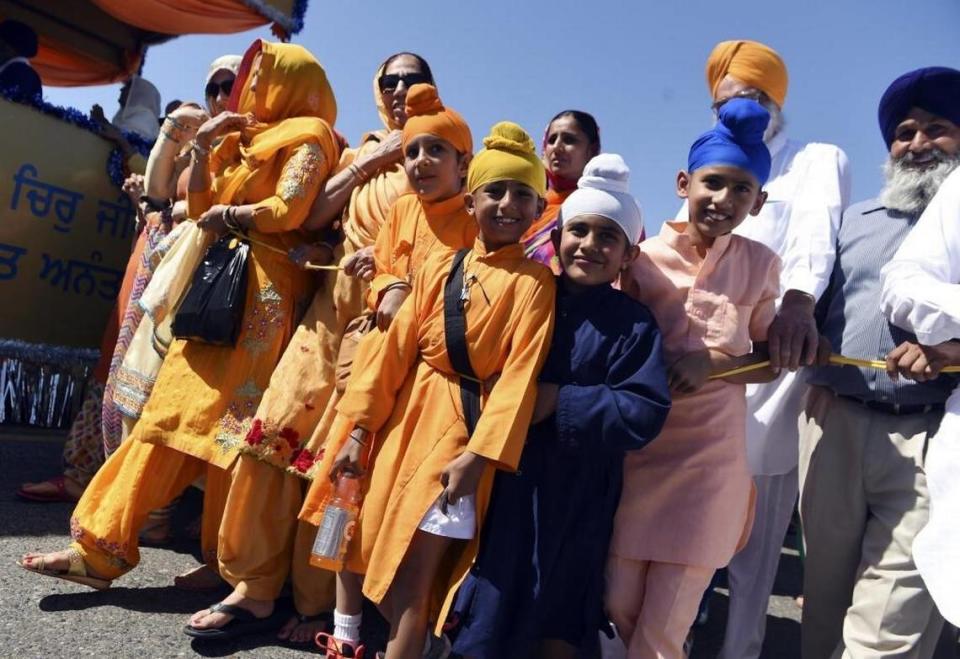Discrimination based on social caste is bad. Fresno is poised to do something about it | Opinion
Like other communities in California, the city of Fresno prohibits discrimination and harassment based on race, color, ancestry, religion, creed and national origin.
Now, in what would be a first in California, the city could add caste and indigenous status to the list of unacceptable discrimination.
The Fresno City Council earlier this month voted 7-0 to add caste and indigeneity to its list of human rights protections. The proposed ordinance needs a second reading and, by all expectations, will be unanimously approved again, as it should be.
The measure was to be heard this Thursday, but will likely be rescheduled to September at the request of members of South Asian communities from around the state who want to travel to Fresno to witness the approval in person.
The law is more than simply symbolic. It is a strong message to immigrants that the caste traditions and indigenous discrimination in their home countries are not acceptable here, and that they can find a better life in Fresno, said Councilmember Miguel Arias.
“If they come to city of Fresno, they should not have to worry about that system of oppression following them,” he said.
What is caste?
India’s caste system is one of the world’s oldest social orders, in which people are divided into groups. Fresno State Professor Aseem Hasnain and Cal State San Bernardino Professor Abhilasha Srivastava wrote an article for a website, The Conversation, about how earlier this year, Seattle became the first city in the nation to ban caste discrimination.
They explained that while the caste system originated in India, it spread to other societies in South Asia. Caste practices today can be found in Pakistan, Bangladesh, Nepal, Sri Lanka, Maldives and Bhutan.
In a society based on caste, privilege, wealth and rank are inherited. Those at the top get the best jobs and are paid the most honor. Those at the bottom have the worst tasks and are dismissed of having value. The castes get inherited, making it difficult for anyone to break free.
“Brahmins, for example, who were traditionally assigned priestly work, are at the top, and Dalits, relegated to the bottom, are forced into occupations that are considered abject in South Asia,” the professors wrote. “These include janitorial work, maintaining sewage systems, skinning dead animals, and leather tanning. Strict rules of caste-based marriages maintain these boundaries firmly.
“Caste organizes social life not only among Hindus but also in Muslim, Christian, Sikh and Buddhist communities in the region. It is an intergenerational system based on birth into a caste group. Caste identities stay even generations after someone converts out of Hinduism and into any of these faiths.”
Those making up Fresno’s indigenous communities come from Mexico and Central American countries, as well as Native American tribes.
Fresno’s ordinance notes that caste and indigeneity discrimination occurs in employment, education and housing.
Local Sikh activism
Fresno’s ordinance resulted after members of the county’s sizable Sikh community requested such a ban, Arias said. The most recent U.S. census put the Sikh population in Fresno County at 70,000. Backing the measure is the Jakara Movement, an advocacy group for Sikhs in Fresno.

The California State University system added caste to its anti-discrimination policies last year.
In addition, a bill approved in the state Senate is pending in the state Assembly to ban discrimination in California on the basis of ancestry. Senate Bill 403 was authored by Democrat Aisha Wahab of Hayward, the first Afghan-American woman elected to public office in the United States. The co-author is Democrat Assemblymember Jasmeet Bains of Delano.
Over more than a century, Fresno has become home to immigrants leaving oppressive conditions in their homelands. Armenians fled the genocide in their country before World War I; later, Blacks left the South after World War II to escape discrimination and find affordable housing. Mexicans and Central Americans have come to Fresno for decades in the quest for work, and Hmong from Southeast Asia escaped the Vietnam War and settled here, many becoming farmers.
Through it all, Fresno welcomed and assimilated the newcomers. Today more than 70 languages are spoken in the Fresno Unified School District.
The effort to outlaw discrimination on the basis of caste or indigenous background is a further strengthening of Fresno’s human rights. Residents should be proud of their leaders taking the step to make Fresno the first city in California with such a distinction.

